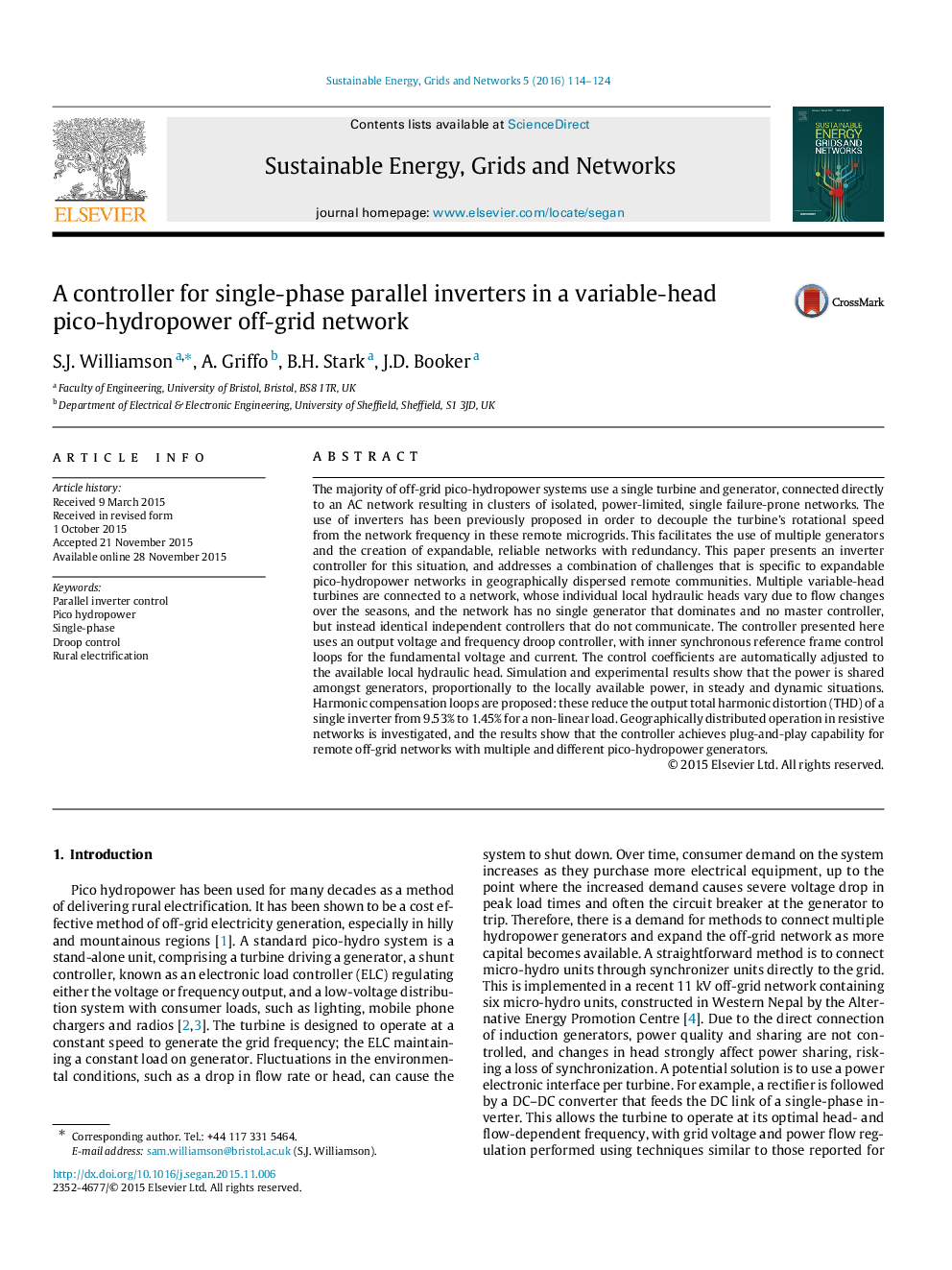| Article ID | Journal | Published Year | Pages | File Type |
|---|---|---|---|---|
| 524760 | Sustainable Energy, Grids and Networks | 2016 | 11 Pages |
The majority of off-grid pico-hydropower systems use a single turbine and generator, connected directly to an AC network resulting in clusters of isolated, power-limited, single failure-prone networks. The use of inverters has been previously proposed in order to decouple the turbine’s rotational speed from the network frequency in these remote microgrids. This facilitates the use of multiple generators and the creation of expandable, reliable networks with redundancy. This paper presents an inverter controller for this situation, and addresses a combination of challenges that is specific to expandable pico-hydropower networks in geographically dispersed remote communities. Multiple variable-head turbines are connected to a network, whose individual local hydraulic heads vary due to flow changes over the seasons, and the network has no single generator that dominates and no master controller, but instead identical independent controllers that do not communicate. The controller presented here uses an output voltage and frequency droop controller, with inner synchronous reference frame control loops for the fundamental voltage and current. The control coefficients are automatically adjusted to the available local hydraulic head. Simulation and experimental results show that the power is shared amongst generators, proportionally to the locally available power, in steady and dynamic situations. Harmonic compensation loops are proposed: these reduce the output total harmonic distortion (THD) of a single inverter from 9.53% to 1.45% for a non-linear load. Geographically distributed operation in resistive networks is investigated, and the results show that the controller achieves plug-and-play capability for remote off-grid networks with multiple and different pico-hydropower generators.
